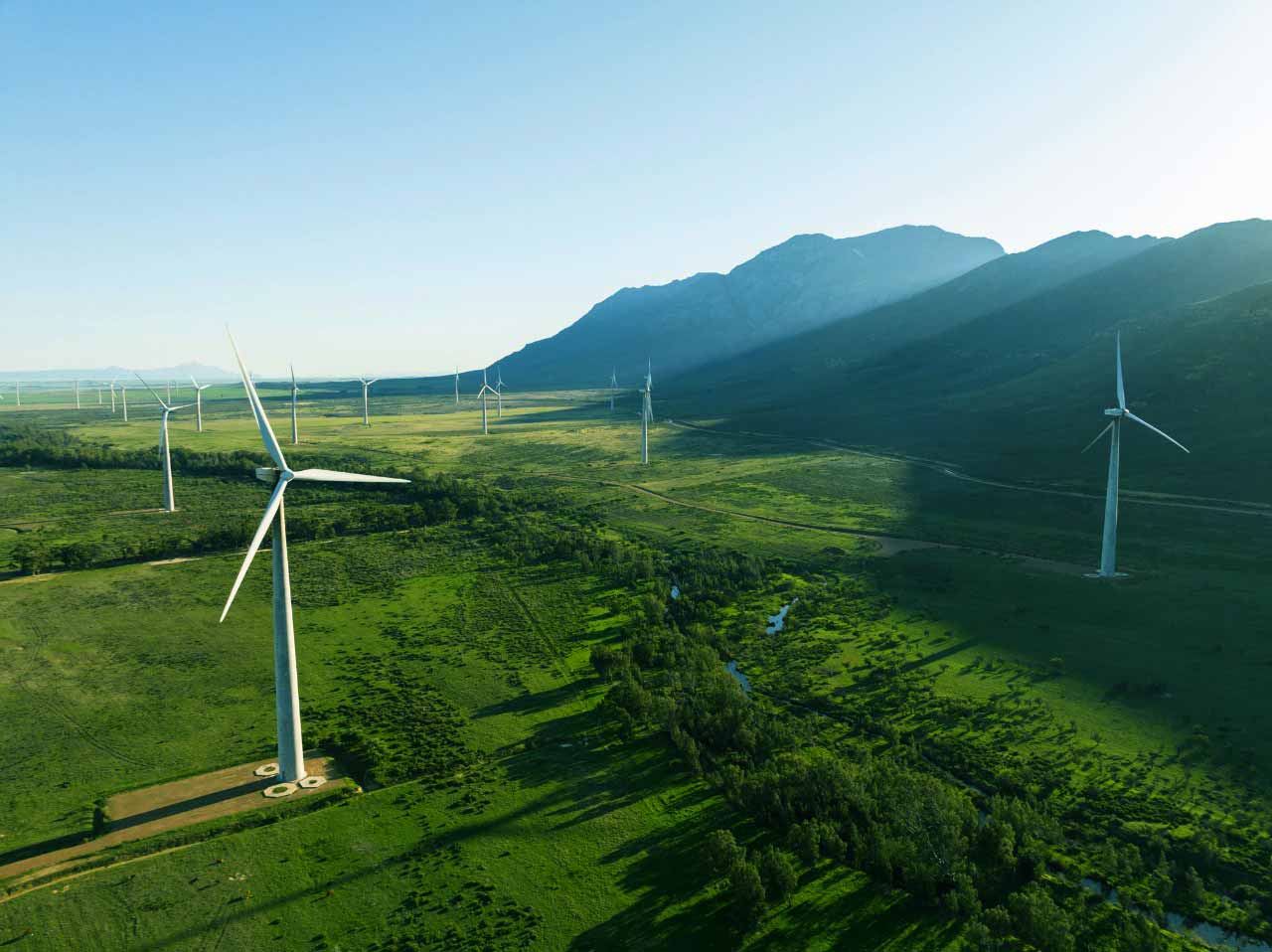Select Country
Don’t have your Nedbank ID yet?
Nedbank ID single sign-on gives you full digital access to Nedbank’s banking and lifestyle products and services on the Money app or Online Banking.
Log in
Log in to Online Banking or another one of our secured services.
Awards
Deals
- R4bn Tronox deal funds two 100MW solar plants
- Billions to help Redefine build green properties
- Harmony pursues green goals with R10 billion loan
- Cold solutions finance for cold storage facilities
- International Finance Corporation green bond fund
- Envusa energy deal: The way for renewable energy
- Paladin Energy senior debt funding partnership
- Renewable energy wind farm financing
- Stor-Age’s successful inaugural bond auction
- PlusNet, Peninsula Packaging and Barrier Film Convertors co-investment opportunity | Nedbank CIB
- IFC Green Loan | Nedbank CIB
- AngloGold appoints Nedbank CIB as sole underwriter | Nedbank CIB
- Nedbank CIB Property Finance Team achievement | Nedbank CIB
- PwC Tower, Westlands — Where Kenya's corporate vision meets world-class execution
Women of Corporate Investment Banking
Young Analyst Programme
Articles
- Africa's pathway to a climate-resilient economy
- Commercial property trends 2022
- Green energy in the developing world | Nedbank CIB
- How sustainable finance creates value
- How the property sector recovered in 2023
- FURTHER IMPACT empowerment for entrepreneurs
- There's a new buoyancy around water and sanitation
- What happens when finance meets sustainability?
- Africa’s renewable-energy projects
- Breaking barriers for energy transition in mining
- Nedbank CIB wins big at 2025 IFC Awards
- South Africa leads clean energy transformation
Conferences
Benchmark Reform
Corporate Finance
Financing
Investing
Markets
Transacting
- Login & Register
- Online Banking
- Online Share Trading
- NedFleet
- Register for Nedbank ID
- About us
- Awards
- Deals
- Explore About us
- Awards
- Deals
- R4bn Tronox deal funds two 100MW solar plants
- Billions to help Redefine build green properties
- Harmony pursues green goals with R10 billion loan
- Cold solutions finance for cold storage facilities
- International Finance Corporation green bond fund
- Envusa energy deal: The way for renewable energy
- Paladin Energy senior debt funding partnership
- Renewable energy wind farm financing
- Stor-Age’s successful inaugural bond auction
- PlusNet, Peninsula Packaging and Barrier Film Convertors co-investment opportunity | Nedbank CIB
- IFC Green Loan | Nedbank CIB
- AngloGold appoints Nedbank CIB as sole underwriter | Nedbank CIB
- Nedbank CIB Property Finance Team achievement | Nedbank CIB
- PwC Tower, Westlands — Where Kenya's corporate vision meets world-class execution
- R4bn Tronox deal funds two 100MW solar plants
- Billions to help Redefine build green properties
- Harmony pursues green goals with R10 billion loan
- Cold solutions finance for cold storage facilities
- International Finance Corporation green bond fund
- Envusa energy deal: The way for renewable energy
- Paladin Energy senior debt funding partnership
- Renewable energy wind farm financing
- Stor-Age’s successful inaugural bond auction
- PlusNet, Peninsula Packaging and Barrier Film Convertors co-investment opportunity | Nedbank CIB
- IFC Green Loan | Nedbank CIB
- AngloGold appoints Nedbank CIB as sole underwriter | Nedbank CIB
- Nedbank CIB Property Finance Team achievement | Nedbank CIB
- PwC Tower, Westlands — Where Kenya's corporate vision meets world-class execution
- Women of Corporate Investment Banking
- Young Analyst Programme
- Articles
- Africa's pathway to a climate-resilient economy
- Commercial property trends 2022
- Green energy in the developing world | Nedbank CIB
- How sustainable finance creates value
- How the property sector recovered in 2023
- FURTHER IMPACT empowerment for entrepreneurs
- There's a new buoyancy around water and sanitation
- What happens when finance meets sustainability?
- Africa’s renewable-energy projects
- Breaking barriers for energy transition in mining
- Nedbank CIB wins big at 2025 IFC Awards
- South Africa leads clean energy transformation
- Africa's pathway to a climate-resilient economy
- Commercial property trends 2022
- Green energy in the developing world | Nedbank CIB
- How sustainable finance creates value
- How the property sector recovered in 2023
- FURTHER IMPACT empowerment for entrepreneurs
- There's a new buoyancy around water and sanitation
- What happens when finance meets sustainability?
- Africa’s renewable-energy projects
- Breaking barriers for energy transition in mining
- Nedbank CIB wins big at 2025 IFC Awards
- South Africa leads clean energy transformation
- Conferences
- Benchmark Reform
- Solutions
- Corporate Finance
- Financing
- Investing
- Markets
- Nedbank Business Hub
- Transacting
- Explore Solutions
- Corporate Finance
- Financing
- Investing
- Markets
- Nedbank Business Hub
- Business hub lead form
- Business hub lead form
- Transacting
- Sustainability
- Explore Sustainability
- Contact us
- Explore Contact us
Accelerating and scaling Africa’s renewable-energy projects
Accelerating and scaling Africa’s renewable-energy projects
Hlatse Nkune
2 mins
In Africa more than 600 million people lack access to electricity. At the current pace of electrification millions of Africans are still expected to be without electricity in 2030 unless the pace of electrification is trebled, by connecting more than 90 million people a year. Beyond electrification, African countries should also focus on reducing gaps in access to electricity between urban and rural areas through expanding the electrical grid.
Most Africans continue to live in rural and remote areas where grid expansion is often not as economically viable as it is in large, densely populated communities that live close to the grid. Mini grids that supply renewable power may be the best solution for providing reliable electricity to communities that are far from the main national grid, since these mini grids are independent and decentralised. Furthermore, access by consumers and businesses should be balanced. For example, villages next to a mine should not be left in the dark while the mine continues to receive power.
Scaling up renewable-energy generation across the continent is vital for achieving sustainable development and economic growth. Africa has unmatched potential for renewable-energy generation, boasting some of the best solar and wind resources in the world. Therefore, African countries must maximise utility-scale generation from wind and solar energy.
To increase the pace and scale of renewable-energy projects to meet the growing energy demand, a number of factors should be addressed urgently:
- Grid expansion – African countries need reliable grid capacity, particularly in resource-rich areas, to ensure that more projects are connected and are generating more power.
- Off-grid solutions – In rural areas, where it is extremely difficult to extend the national grid, embedded-generation projects or mini-grid systems are key to providing access to reliable, affordable electricity. With Africa being home to 60% of the best solar resources globally, embedded-generation projects such as solar photovoltaic (PV) projects, when combined with battery storage solutions, are the fastest and most cost-effective mechanism to accelerate clean electricity access in rural areas. Multilateral agencies and development finance institutions can play a key role in promoting private investment into embedded generation and mini-grid systems to electrify targeted areas quickly and efficiently.
- Utility-scale renewable projects and private sector participation – It is also imperative that African countries procure and build significant renewable-energy capacity to meet the increasing demand (which has resulted in rolling blackouts in several countries). While governments should focus on grid expansion, private power generation is expected to play a major role in addressing the supply gap as well. This will further alleviate strained government balance sheets so that governments can focus on key infrastructure investments. Other key role players are multilateral agencies, who should deploy concessional finance strategically.
- Government incentives – The introduction of tax benefits and other incentives will also encourage private sector and citizen participation in power self-generation. Governments, including South Africa’s, are already implementing measures to incentivise citizens, private power generators and off-takers through carbon credits, tax rebates and other incentives.
- Political and government commitment – There must be political commitment and policy certainty. The time that some African governments take in implementing policies and issuing permits and other approvals (such as environmental and water licences) slows the development of renewable-energy projects significantly.
- Policy and regulatory framework – Policy certainty and reduction in red tape are also key. In South Africa the relaxation of regulatory barriers to private power generation and increased regulatory clarity regarding the wheeling (transmission) of electricity has resulted in significant private investment in renewable energy.
Accelerating the installation of utility-scale renewable-energy capacity while resolving grid constraints in underserved areas to facilitate the integration of that capacity will also address the extremely low fleet energy availability factor of most African utilities. This will close the energy shortfall between rural areas and those that are better connected. African counties must also encourage utility-scale battery storage and the take-up of residential rooftop solar power.
Related posts
See allAfrica’s data centre boom: Driving digital growth
Africa’s digital transformation is no longer a distant prospect; it is happening now, with data centres playing a pivotal role in this revolution. As these centres drive innovation and economic growth across the continent, they are positioning Africa as a formidable player in the global digital landscape.
By Ilana van Schalkwyk, Sector Lead ICT at Nedbank CIB
Published 21 Oct 2024 in nedbank:cib/articles/innovation

Africa’s data centre boom: Driving digital growth
Africa’s digital transformation is no longer a distant prospect; it is happening now, with data centres playing a pivotal role in this revolution. As these centres drive innovation and economic growth across the continent, they are positioning Africa as a formidable player in the global digital landscape.
Ilana van Schalkwyk, Sector Lead ICT at Nedbank CIB
Published 21 Oct 2024
Accelerating and scaling Africa’s renewable-energy projects
In Africa more than 600 million people lack access to electricity. At the current pace of electrification millions of Africans are still expected to be without electricity in 2030 unless the pace of electrification is trebled, by connecting more than 90 million people a year. Beyond electrification, African countries should also focus on reducing gaps in access to electricity between urban and rural areas through expanding the electrical grid.
By Hlatse Nkune
Published 22 Aug 2024 in nedbank:cib/articles/energy

Accelerating and scaling Africa’s renewable-energy projects
In Africa more than 600 million people lack access to electricity. At the current pace of electrification millions of Africans are still expected to be without electricity in 2030 unless the pace of electrification is trebled, by connecting more than 90 million people a year. Beyond electrification, African countries should also focus on reducing gaps in access to electricity between urban and rural areas through expanding the electrical grid.
Hlatse Nkune
Published 22 Aug 2024





